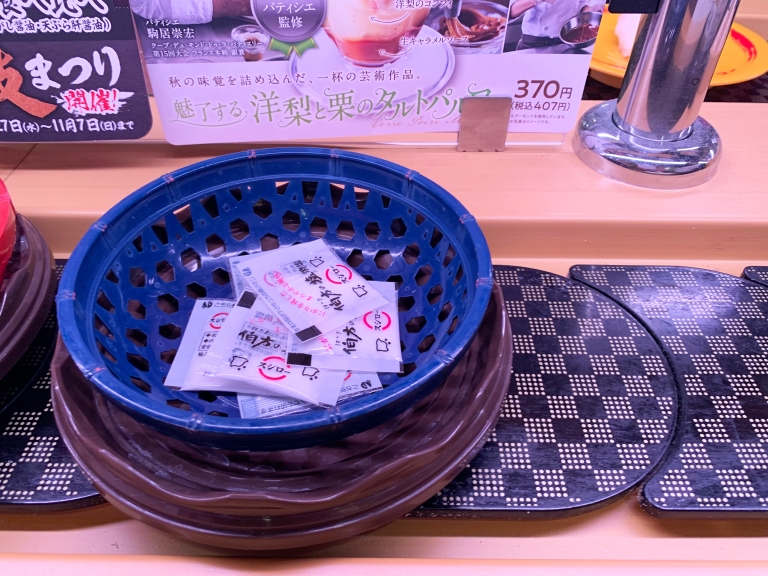
It turns out there’s a number of things you can put salt on, besides french fries!
Did you know that you can get little packets of salt at the conveyer belt sushi restaurant Sushiro? They’re very easy to overlook because they’re rotating around just like all the other dishes, sitting in a pile in a little bowl. If you’re not looking for them, you probably wouldn’t even see them, focused as you are on the sushi.
And even if you did, you’d probably wonder what the heck they’re for. With soy sauce as a preferred topping for most sushi, who needs salt? We asked conveyer-belt sushi (or kaitenzushi) maniac Kurara Sengyo what they use it for, and the answers were pretty interesting!
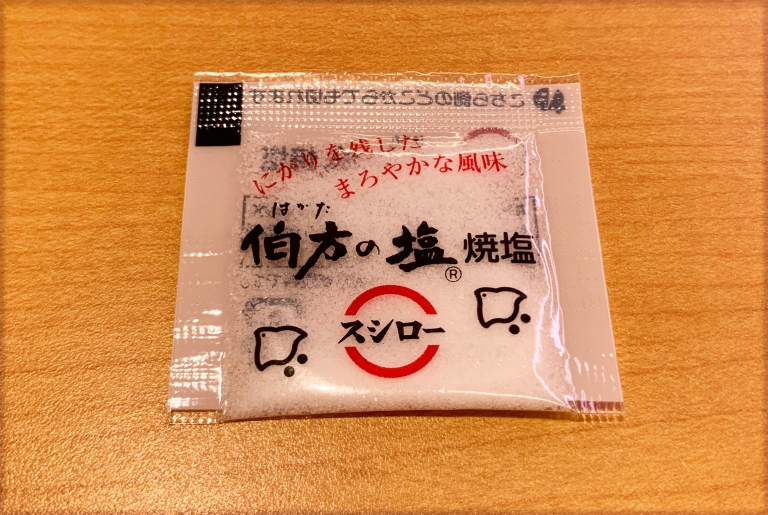
Kurara is a conveyer belt sushi expert that has previously given us great advice about what to order at both Sushiro and Kura Sushi if you don’t like raw fish. They’ve been obsessed with conveyer belt sushi restaurants for over 25 years, and to this day still make sure to visit one at least twice a week. Today, they taught us the best ways to use table salt at Sushiro. So, Kurara, what do you use salt on at Sushiro?
Kurara: “First, I use it on tempura sushi. At Sushiro, they make your tempura fresh to order, so it’s nice and crispy. If you sprinkle a little salt, it really adds to that crunchy texture.
“Sushiro’s white-fish tempura has an especially nice harmony of fluffy on the inside and crispy on the outside, and that’s why ten-tsuyu broth or soy sauce is just not quite enough…I eat their John Dory fish tempura nigiri (or matodai no tempura nigiri in Japanese) with salt on top and no sauce or broth.”
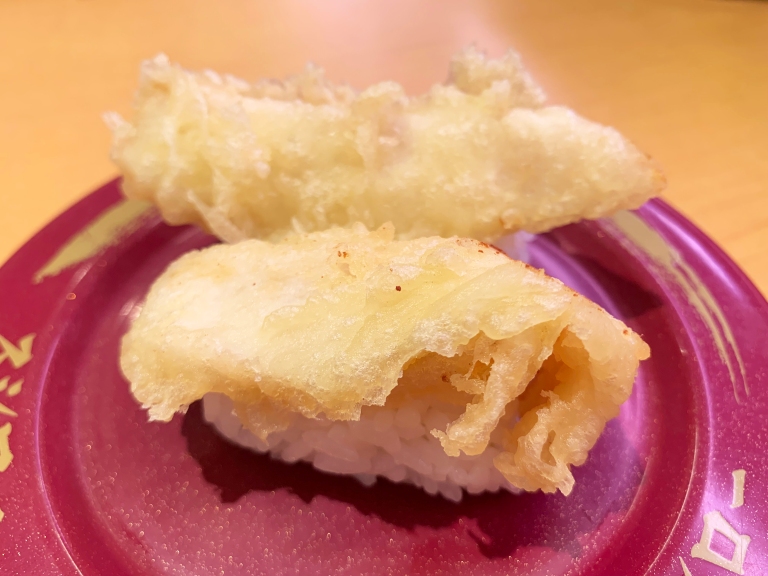
Interesting. So Kurara recommends sprinkling salt directly on the tempura. Personally, we never would have thought to use salt at all on sushi, but on tempura, it does sound pretty good.
Kurara: “I also put salt on white fish sushi. Needless to say, it’s good on sea bream (tai) and shore dotterel (nodoguro), but I especially recommend using salt on meat engawa, meat from the base of flounder or flatfish fin. Salt helps draw out the flavor of the shiso leaf Sushiro uses with its engawa sushi and makes the all-around taste much more refreshing.”
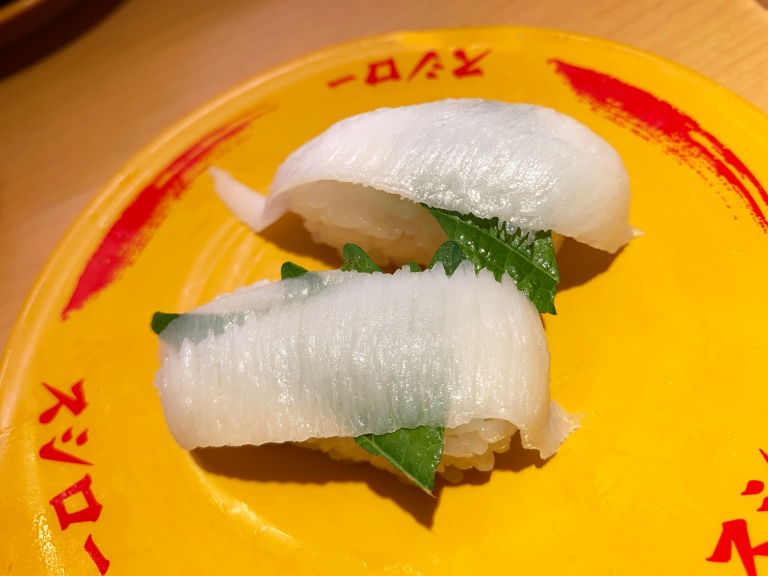
Oh, so it’s a way to bring out the flavors of the individual ingredients, then. We hadn’t really eaten the engawa cut much before, but when we tried it with salt, we were surprised how refreshing it actually was.
We have to say, though, neither of these suggestions was truly out of the ordinary. Is this all we can expect, even from a kaiten-zushi maniac?
Kurara: “And last is tuna (maguro).”
…Huh?
Kurara: “Tuna.”
…You mean…like, tuna tuna?
Kurara: “Yes.”
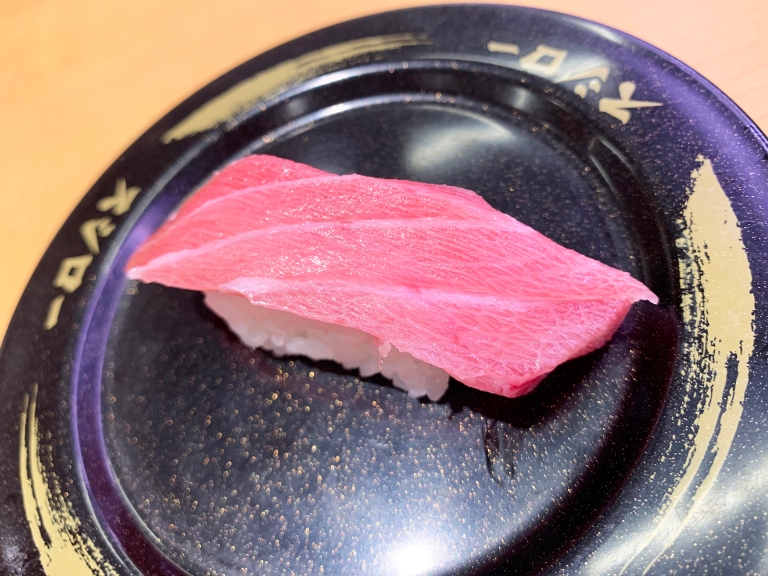
No way. Tuna is only supposed to be eaten with soy sauce. That’s just the way it is!
Kurara: “Well, I’m not saying that putting salt on tuna is better than soy sauce. But salt gives it a completely different taste. On Sushiro’s tuna, especially, salt really amplifies the flavor of the fish. It really suits fatty cuts like otoro (fatty tuna).”
Feeling some lingering doubt, we gave it a try. It wasn’t bad at all!
Kurara: “Also for tuna, I recommend you salt their minced tuna with onions (negitoro). It makes the flavor of the seaweed just burst in your mouth. Plus it gives a nice ocean-y flavor to the tuna, which is both mild and rich at the same time.”
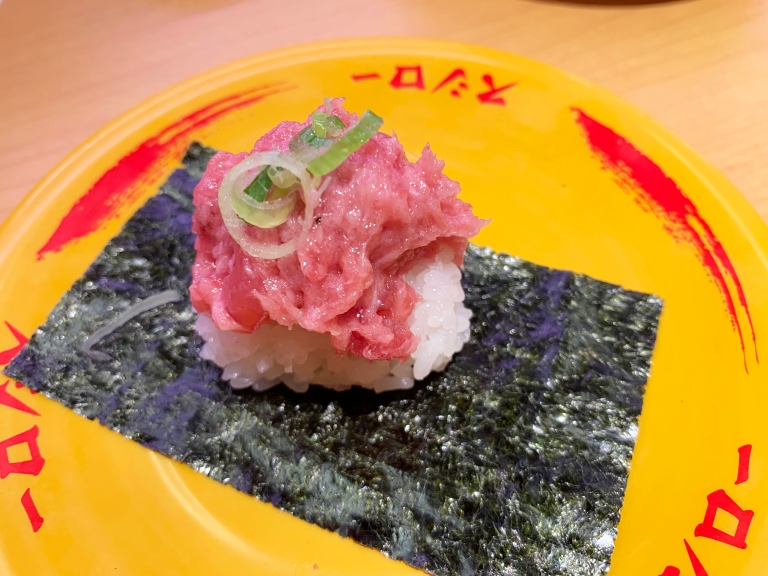
That was exactly the experience we had when we tried it. Salt drew out the flavor of the seaweed even better than soy sauce. It also made the dish feel more satisfying. We used to think tuna was only meant to be eaten with soy sauce, but now we know a new way to eat it!
That reminds us of the time Sushiro recommended a unique way to eat sea bream that included salt–which ended up being delicious. It seems there is definitely some merit to sprinkling salt on sushi! Next time you head off to Sushiro for a bite, why not give one of these ideas a try?
Images © SoraNews24
● Want to hear about SoraNews24’s latest articles as soon as they’re published? Follow us on Facebook and Twitter!

No hay comentarios:
Publicar un comentario